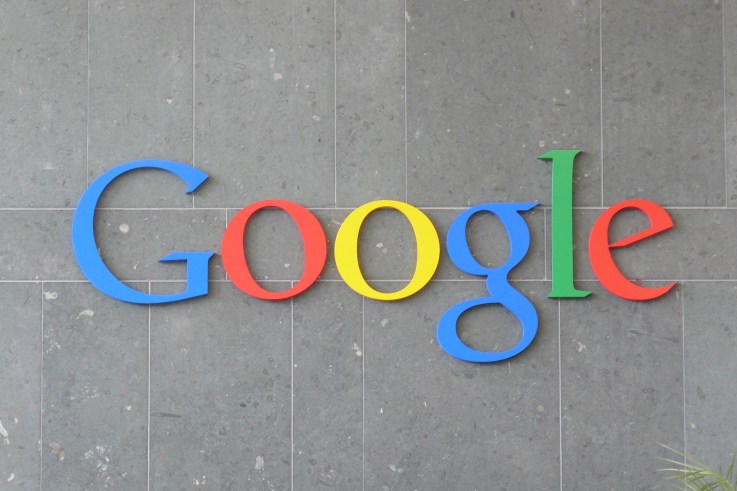 U.S. consumer rights organization, Consumer Watchdog, has lodged a complaint
with the FTC that Google is being “unfair and deceptive” by not
extending the sorts of individual privacy rights it now offers Europeans
— under Europe’s May 2014 ‘right to be forgotten’ ruling — to its U.S. users.
U.S. consumer rights organization, Consumer Watchdog, has lodged a complaint
with the FTC that Google is being “unfair and deceptive” by not
extending the sorts of individual privacy rights it now offers Europeans
— under Europe’s May 2014 ‘right to be forgotten’ ruling — to its U.S. users.Specifically it’s calling for Google to afford U.S. citizens a ‘right to relevancy’ in terms of the data that is associated with their identity online. Let’s just say that a very large red alarm klaxon probably just sounded in Mountain View.
As European philosopher Friedrich Nietzsche once noted, long before U.S. Internet giants were getting embroiled in European data protection legislative frameworks, if you gaze long into the abyss, the abyss gazes back into you.
“Google’s refusal to consider such requests in the United States is both unfair and deceptive, violating Section 5 of the Federal Trade Commission Act,” said John M. Simpson, Consumer Watchdog’s Privacy Project director, in a statement on the complaint. “We urge the Commission to investigate and act.”
The so-called right to be forgotten (rtbf) ruling refers to a judgement by Europe’s top court that private individuals have a right to ask that search engines delist outdated, irrelevant or erroneous information from search results associated with their own name.
The court judged that search engines are data controllers and therefore that existing European data protection legislation applies to them. Source data is not removed from the Internet, merely decoupled from the requester’s identity in search results.
Since the rtbf ruling came into effect, Google — which remains by far the dominant search engine in Europe, with a circa 90 per cent share of the market — has received more than 280,000 requests for delisting in Europe, granting around 40 per cent of them. It keeps a running tally of totals here. And currently only delists on European sub-domains, not on Google.com.
“Honoring the Right To Be Forgotten, or Right To Relevancy, is an important tool to protect privacy. Google’s own experience in Europe demonstrates that Right To Be Forgotten removal requests can be managed in a way that is fair and not burdensome for Google,” the Consumer Watchdog complaint argues.
It asserts:
Google’s anti-consumer behavior around privacy issues is deceptive. The Internet giant holds itself out to be committed to users’ privacy, but does not honor requests that provide a key privacy protection.As well as arguing that a workable rtbf in Europe makes it viable for Google to offer American users the same privacy rights, Consumer Watchdog points to Google’s announcement last month that it would begin offering a process for all web users to request the removal of “revenge porn” imagery — a policy that Google couched as “narrow and limited”, evidently keen to avoid the kind of calls for a general rtbf it’s now fielding.
Not offering Americans a basic privacy tool, while providing it to millions of users across Europe, is also an unfair practice. Acts or practices by a business are unfair under Section 5 of the Federal Trade Commission Act if they cause or are likely to cause substantial injury to consumers that consumers cannot reasonably avoid themselves and that is not outweighed by countervailing benefits to consumers or competition.
Consumer Watchdog’s complaint also notes that Google already edits out other information from U.S. search results — such as National identification numbers, bank account numbers and credit card numbers, and images of signatures.
It’s clear that very large cracks have appeared in Google’s go-to argument against expanding individual privacy rights over the online data hierarchies it generates (i.e. that its search algorithms are ‘an impartial and immutable indexer of truth and knowledge online’). The more truthful assessment is Google’s algorithms are the proprietary and commercially driven levers powering a clicks-for-ads business.
Consumer Watchdog’s complaint cites several specific examples where individuals’ lives are being adversely affected by continued association with digital data about past events — such as a person who was wrongly charged with a violent crime where the charges were subsequently dropped but whose mug-shot photo continues to be associated with her online identity; or the victim of a car crash whose family continues to see a photo of her decapitated body if they Google her name.
Google is clearly feeling a lot more heat than usual on the issue of privacy, both within Europe and as awareness of the rtbf ruling has rippled out across the Atlantic. Last month it announced it was centralizing some user controls with the launch of a new privacy dashboard which it claims improves transparency about how its business gathers and uses user data.
We’ve reached out to Google for comment on the Consumer Watchdog complaint and will update this story with any response.